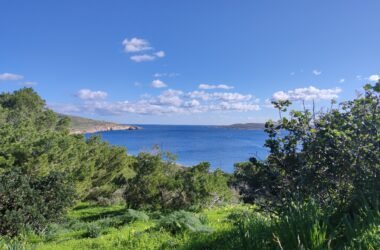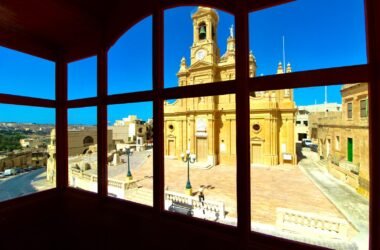Malta offers a variety of private schooling options that attract both local and international families. Choosing the “right” school in Malta isn’t just about comparing prices or curricula; it’s about finding that perfect fit for your child’s unique educational journey and, let’s be honest, your family’s long term plans.
For expats, it’s often a balance between wanting to truly integrate into the Maltese way of life and needing academic continuity for those inevitable future moves.
Two key types of private schools in Malta are independent et écoles internationales. While both require tuition fees and provide quality education, they differ in important ways that can impact your child’s experience. Understanding these differences, such as the curriculum followed, the language used for teaching, the mix of students, and how well the school fits your family’s long-term plans is essential for making the right choice when relocating to Malta.

Curriculum
Independent schools in Malta follow the Maltese national curriculum, preparing students for local exams such as SEC and MATSEC. In contrast, écoles internationales offer foreign curricula, including the British system (IGCSE, A-Levels), the American system, or the International Baccalaureate (IB).
If your family is staying in Malta long-term, independent schools may offer a smoother integration. However, if you’re likely to relocate, international schools provide consistency and globally recognised qualifications.
Langue
Independent schools are bilingual, with instruction in English and Maltese, reflecting the national education policy. International schools, on the other hand, use English as the main language, and typically do not require Maltese proficiency. This is particularly helpful for children from abroad who may not be fluent in the local language.
Student Demographics
Independent schools generally serve a mostly Maltese student body, with some international students. International schools tend to have a more diverse population, with children from various countries, making them a natural choice for expat families seeking a multicultural environment.
Recognised Qualifications
Graduates of independent schools in Malta complete local qualifications such as the MATSEC (Maltese Advanced Level), which is accepted by the Université de Malte and some other European universities.
Students at international schools earn qualifications like IGCSEs, A-Levels, or IB diplomas, which are widely recognised by universities worldwide. This makes international schools particularly suitable for students planning to pursue higher education abroad.
Frais de scolarité
Both types of schools charge fees, but international schools typically cost more due to smaller class sizes, international staffing, and specialised facilities. On average:
| School Type | Estimated Annual Tuition Fees |
|---|---|
| Independent Schools | €3,000 – €6,000 |
| International Schools | €7,000 – €15,000+ |
Independent vs International Schools in Malta – Comparison
Independent Schools
| School Name | Language of Instruction | Curriculum Offered | Estimated Annual Fees (€) |
|---|---|---|---|
| École San Andrea | English, Maltese | Maltese National Curriculum | 3,000 – 6,000 |
| École San Anton | English, Maltese | Maltese National Curriculum | 3,000 – 6,000 |
| St. Martin’s College | English, Maltese | Maltese National Curriculum | 3,000 – 6,000 |
| Chiswick House School | English, Maltese | Maltese National Curriculum | 3,000 – 6,000 |
International Schools
| School Name | Language of Instruction | Curriculum Offered | Estimated Annual Fees (€) |
|---|---|---|---|
| QSI International School Malta | Anglais | American (AP, College Prep) | 7,000 – 15,000+ |
| École internationale Verdala | Anglais | IB, American Curriculum | 10,000 – 15,000+ |
| St. Edward’s College | Anglais | British (IGCSE, A-Levels) | 7,000 – 12,000 |
| British International School | Anglais | British (IGCSE, A-Levels) | 7,000 – 12,000 |
Making the Right Choice
Choosing the right school in Malta is more than just comparing fees or curricula – it’s about finding the right fit for your child’s educational journey and your family’s lifestyle. For expats, this often involves balancing the desire for cultural integration with the need for academic continuity. Independent schools may offer a more immersive local experience, ideal for families planning to stay in Malta long-term. In contrast, international schools provide global mobility and recognised qualifications that can ease future transitions. Both options have their merits, and the best choice depends on your relocation plans, your child’s background, and your academic goals. Whatever path you choose, Malta’s education system offers high standards, supportive environments, and a welcoming community for families from around the world.
If you’re planning a move to Malta and need guidance on education, residency, or setting up life here, the Expatax Malta consulting team is here to assist with every step of your relocation.








